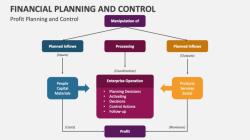How do closed-end funds help investors?
Closed-end funds (CEFs) offer several benefits to investors, providing unique advantages compared to other investment vehicles. Here are some key benefits of closed-end funds for investors:
Professional Management:
- Closed-end funds are managed by professional fund managers who make investment decisions on behalf of investors. This expertise can be particularly beneficial for investors who may not have the time or knowledge to actively manage their portfolios.
Diversification:
- CEFs typically hold a diversified portfolio of securities, which can help spread risk across different asset classes, sectors, or geographic regions. This diversification can reduce the impact of poor performance in any single investment on the overall portfolio.
Access to Specialized Strategies:
- Closed-end funds often focus on specific investment strategies or sectors that may not be easily accessible to individual investors. This allows investors to gain exposure to unique opportunities, such as emerging markets, real estate, or high-yield bonds, through a single investment vehicle.
Leverage:
- Some closed-end funds have the ability to use leverage, which means they can borrow money to invest in additional securities. While leverage increases risk, it also has the potential to enhance returns if the investments perform well. This feature is not commonly found in open-end mutual funds.
Income Generation:
- Many closed-end funds are designed to generate income for investors. They may invest in income-producing assets such as bonds, preferred stocks, or dividend-paying equities. Investors can receive regular distributions, providing a source of income.
Market Discounts/Premiums:
- CEFs trade on the secondary market, and their prices can deviate from their net asset value (NAV). Investors may have the opportunity to buy shares of a closed-end fund at a discount to NAV, potentially providing them with an attractive entry point.
Secondary Market Trading:
- Unlike open-end mutual funds, closed-end funds trade on stock exchanges like individual stocks. This allows investors to buy and sell shares throughout the trading day at market prices, providing liquidity and flexibility.
Fixed Capital Structure:
- Closed-end funds have a fixed number of shares, and the capital structure does not change based on investor demand. This can allow fund managers to take a longer-term investment approach without the need to accommodate frequent inflows or outflows of capital.
Potential for Capital Appreciation:
- In addition to income generation, closed-end funds may provide opportunities for capital appreciation, especially if the underlying investments experience growth over time.
Share Repurchases:
- Some closed-end funds have the authority to repurchase their own shares in the secondary market. This can help reduce the discount to NAV and enhance shareholder value.
While closed-end funds offer various benefits, it's crucial for investors to conduct thorough research and understand the specific features, risks, and historical performance of a particular CEF before investing. Additionally, investors should be aware that the market price of closed-end fund shares can be influenced by factors beyond the fund's NAV, including market sentiment and liquidity conditions.
Sure, here is a comprehensive overview of closed-end funds (CEFs) in terms of income potential, capital appreciation, and associated risks:
Can closed-end funds provide income?
Yes, closed-end funds (CEFs) can be an attractive source of income for investors seeking regular distributions. CEFs are typically structured to generate income from their underlying assets, such as bonds, preferred stocks, or real estate investment trusts (REITs). They distribute a portion of their net investment income (NII) to shareholders on a regular basis, usually quarterly or monthly.
Several factors contribute to the income-generating potential of CEFs:
Focus on income-generating assets: Many CEFs invest primarily in income-producing securities like bonds, preferred stocks, and REITs, which generate regular interest or dividend payments.
Use of leverage: Some CEFs employ leverage, borrowing funds to invest in additional assets, which can amplify their income streams. However, leverage also increases risk.
Active management: CEF managers may actively seek out income-producing opportunities, such as high-yield bonds or undervalued REITs, to enhance income generation.
How do closed-end funds offer capital appreciation?
Closed-end funds can also offer the potential for capital appreciation, meaning the value of their shares can increase over time. This can occur through several mechanisms:
Appreciation of underlying assets: As the value of the assets held by a CEF increases, so does the NAV of the fund, potentially leading to a rise in the share price.
Premium narrowing: CEFs can trade at a discount to their NAV, which represents a potential opportunity for investors. If the discount narrows, the share price can approach or even exceed the NAV.
Leverage: Leverage can magnify the impact of positive market movements, leading to amplified capital appreciation. However, it can also exacerbate losses in declining markets.
What are the risks of investing in closed-end funds?
While CEFs can offer attractive income and capital appreciation potential, they also carry certain risks that investors should consider:
Trading discounts: CEFs can trade at discounts to their NAV, which means you could pay more for the fund than the underlying assets are worth. Discounts can persist or widen, potentially affecting your returns.
Higher fees: CEFs typically have higher expense ratios than ETFs due to their active management and leverage strategies. These fees can erode your returns over time.
Limited liquidity: CEFs are generally less liquid than ETFs, meaning there may be fewer buyers and sellers, which can make it more difficult to trade the shares at fair value.
Leverage risk: CEFs that employ leverage can amplify both gains and losses, increasing the overall risk profile of the investment.
Active management risk: The performance of a CEF is dependent on the skill of the portfolio manager. If the portfolio manager makes poor decisions, it can hurt the fund's performance.
Carefully evaluate these risks and ensure they align with your investment objectives and risk tolerance before investing in CEFs.












